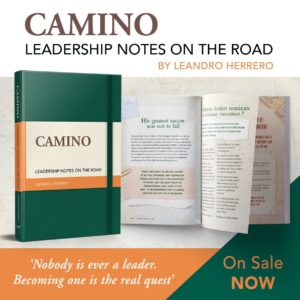I broke my antisocial tradition during taxi rides and started a conversation with my Panama driver. I asked him who was the best President they had ever had.
I was intrigued enough to ask. I was going to be there for a few hours, working with a client, and I had very little time for sightseeing, so the hotel introduced me to Pedro. I was, officially, ‘an English doctor who speaks rather good Spanish’. Flattered by the ‘rather good’ ranking of my native language and amused by my suddenly acquiring a new nationality, I went for a three hour overpriced private tour.
I am usually quiet, hiding at the back of cars. I’m the opposite of some friends of mine who always talk to taxi drivers, as if they knew them from primary school and were suddenly reunited.
I did not get an initial answer about a President, but Pedro gave me the mental frame instead, perhaps so I could make my own judgment. ‘Mister – Pedro started any sentence with Mister – there are two types, he said, the ones who do a lot for the country, but they steal a lot and the ones who don’t steal, but they don’t do anything’.
The binary world of Pedro was there in front of me, naked, crude, and solid. It was expressed with the conviction of a first hand receiver, a native; somebody who seemed to know what he was talking about.
There is something universal in the inevitability of the world of Pedro. We are prone to accept binary worlds. They are solid frames. ‘One of us’ or ‘not one of us’. Remember the launch of the so-called War on Terror? ‘With us, or against us’. Pedro’s moral choices of political leadership are also present in our narrative of leadership of organizations, not so crude, but often equally bipolar. Strong, decisive leaders, will also be authoritarian and leave little room for empowerment. Kind sensitive and human leaders will also be weak. We may not notice it, but we are always unconsciously pairing bits of reality all the time, as Pedro does with his Presidents. And the pairing goes beyond leadership: quality of work will be slow, fast and harried will compromise quality, etc.
Unbundling moral choices may be a necessary step to look freshly at the reality in front of us. But I did not get any unbundling from Pedro, nor did I pursue the conversation, absorbed as I was for a while in the little digestion of his binary world.
Having broken my silent vows when in the back of cars, Pedro felt free to follow his own questioning about things, for him much more interesting than the morality of leaders, so I had to oblige with answers: no, I had not watched Manchester United matches live; no, we don’t have the Euro in the UK, yes, its possible to go to Paris by train; no, its not raining all the time, no, Berlusconi was not the President of Europe: yes, we still have queens and kings in Europe, fancy that!
Featured in my latest book: Camino – Leadership Notes on the Road
________________________________________________________________________________________________
Camino – Leadership Notes On The Road
Available from all major online bookstores
Downloadable extracts: Extract Camino Chapter 1, Camino – Extract Chapter 2 part 1
A collection of notes on leadership, initially written as Daily Thoughts. Camino, the Spanish for road, or way, reflects on leadership as a praxis that continuously evolves. Nobody is ever a leader. Becoming one is the real quest. But we never reach the destination. Our character is constantly shaped by places and journeys, encounters and experiences. The only real theory of leadership is travelling. The only footprints, our actions. The only test, what we leave behind.




Would you like to comment?